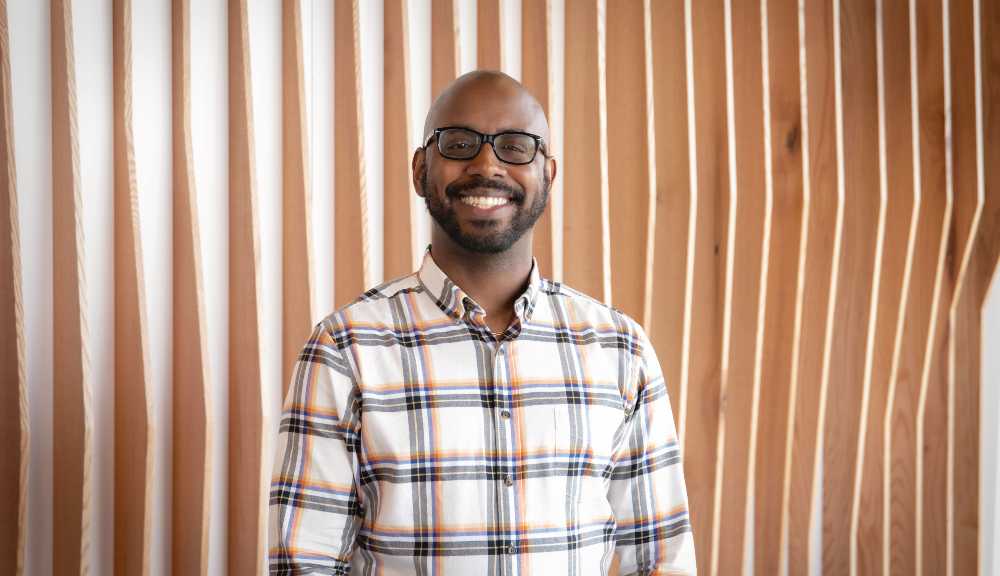After a brief overhaul, WPI’s chapter of the Northeast Louis Stokes Alliance for Minority Participation (LSAMP) is continuing to offer research experiences, connections, and pathways to futures in STEM for underrepresented minority students.
Renamed in honor of former congressman Louis Stokes, LSAMP is a national program funded by the National Science Foundation, and is designed to increase the number of domestic students of color who pursue and complete bachelor’s and graduate degrees in STEM fields.
The New England chapter of LSAMP is nearly 20 years old, and consists of Northeastern University, University of Connecticut, UMass Amherst, University of Rhode Island, Tufts University, and WPI.
As a whole, all schools in the alliance agree on a handful of activities to complete together, as well as a central activity they focus on individually in order to meet the goal of the grant. For WPI, that point is the Connections pre-orientation program. Before the program’s overhaul, LSAMP was run by the Office of the Provost, but when current director of the Office of Multicultural Affairs (OMA) Charlana Simmons arrived at WPI two years ago, she struck up plans to move the program back to OMA with assistance from Tiffiny Butler, assistant teaching professor of biomedical engineering and principal investigator of LSAMP.
The program’s goal is to induct a certain amount of students per year (regardless of academic class) based on applications. Each inducted student is then assigned an advisor, whether it be Simmons or Butler, both of whom provide support and advice in one-on-one and group settings to help students work through academic goals ranging from first introductions to research pursuits in STEM to preparing for grad school applications.
“There’s a level of influence peers can have on students that adults cannot, and we want to make sure the students have access to those influencers, especially those who have already gone through the [LSAMP] program.” -Charlana Simmons
“Trying to plan the next few years of your future can be overwhelming, and you can make decisions that aren’t based in reality because you don’t have access to good information,” Simmons explains. “Students can start to catastrophize, and that kind of thinking can immobilize them, so we want to make sure we’re there every step of the way to support them in a rational and methodological thinking pattern.”
In addition to support and resources, students who are part of LSAMP have opportunities to receive stipends to complete research with faculty members over the summer; attend a specialized speaker series; learn the ways research is related to race, class, gender, and sexuality; and connect with grad students and upperclassmen in their fields of interest, something Simmons sees as particularly invaluable.
“There’s a level of influence peers can have on students that adults cannot, and we want to make sure the students have access to those influencers, especially those who have already gone through the [LSAMP] program,” she explains.
Part of a Larger Whole
WPI welcomed its latest inaugural LSAMP class in an induction ceremony held at Higgins House in October. Composed of 20 students from across all class years, the event gave students the chance to hear from faculty, staff, and students from other institutions about their experiences in the program. Each student also invited a guest to attend the event and share in the experience with them.
Having the opportunity to play a role in the lives of students as they continue their educational journeys is important to Simmons and Butler. “I’m an educator by training, and it’s important to me that I have the opportunity to work with students who are interested in pursuing graduate study in their fields,” Simmons says. “When I was a graduate student, the experience was life-changing, and it helped me understand how important that work is, to move knowledge forward in the world.
“Bringing together my love for STEM and my sensitivity to students of color and other marginalized groups helps me live out my passions in a way that produces justice in my community.” -Tiffiny Butler
“I see it as a responsibility to continue to support students who will be the next group of folks who will create and preserve knowledge in their fields, and work to share that knowledge with future generations of scientists. It makes me feel like I’m part of a larger whole, and also gives me joy to be able to see students reaching their goals.”
Butler agrees, adding that her involvement in LSAMP allows her to be the kind of role model for students of color that she didn’t have during her time as a student and as a young professional. “WPI is a special community, offering a level of autonomy and collaborative capacity with both faculty and staff to maximize impact in a way I didn’t think was possible,” she says. “Bringing together my love for STEM and my sensitivity to students of color and other marginalized groups helps me live out my passions in a way that produces justice in my community. I’m grateful to work with so many gifted and talented students.”
Students interested in applying to the program may email Butler, or visit the website for more information.
- By Allison Racicot





